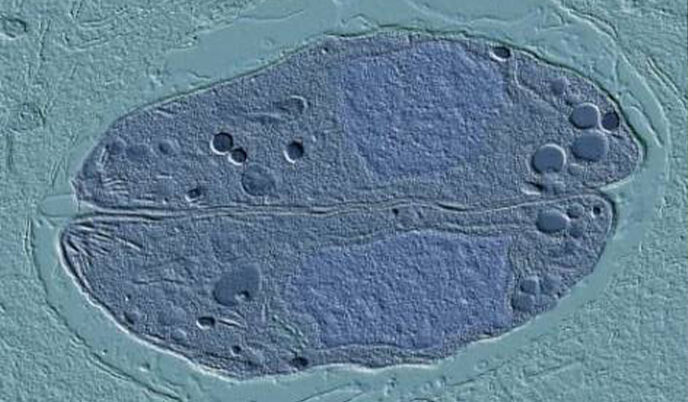
Microbiology alum wins prestigious award
Ruth Isenberg, a first-generation college student who earned her PhD in microbiology from the UW–Madison Microbiology Doctoral Training Program in 2023, was awarded the 2024 Nat L. Sternberg Thesis Prize for outstanding doctoral research in the field of bacterial molecular biology.

Vanessa Sperandio named chair of Medical Microbiology and Immunology
Vanessa Sperandio, PhD, an expert in the cellular interactions that take place between mammals and microbes, will join the University of Wisconsin School of Medicine and Public Health as the chair of the Department of Medical Microbiology and Immunology.

Molds damage lung’s protective barrier to spur future asthma attacks
University of Wisconsin–Madison researchers have identified a new way that common Aspergillus molds can induce asthma, by first attacking the protective tissue barrier deep in the lungs.

Stem cells could help cancer patients fight dangerous infections
Scientists at the University of Wisconsin–Madison have developed a more efficient way to grow the white blood cells, which serve as front-line defenders against bacterial infections but are often depleted as a potentially deadly side effect of cancer treatment.

Thanks to science, parasite can have sex in mice, not just cats
Toxoplasma gondii, a single-celled parasite perhaps best known for its ability to trick mice into taking potentially fatal risks around cats and, in humans, as a serious threat to fetal health, has given up a long-held secret of its reproduction.

Investigation into fungal infection reveals genetic vulnerability in Hmong
Ten years ago, in Marathon County, Wisconsin, 55 people were sickened by an uncommon fungal infection called blastomycosis. Thirty patients were hospitalized. Two people died.

JD Sauer earns $500,000 award to study how cells guard against pathogens
Thanks to a prestigious national award, a researcher at UW-Madison will have a chance to learn exactly how cells protect themselves from pathogens that invade the cytosol, the watery fluid in which organelles live inside the cell.

Study finds people with Alzheimer’s disease have altered gut bacteria
Changes in gut bacteria could be linked to Alzheimer’s disease, according to a new study from the University of Wisconsin School of Medicine and Public Health.